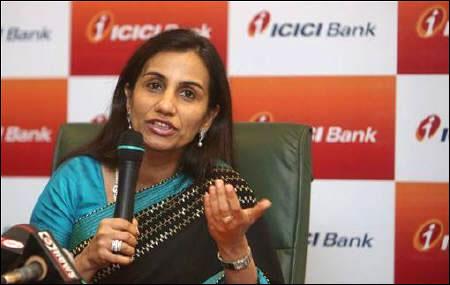
It was merely an obligation in the past, but financial inclusion has now turned into a big business opportunity for private banks.
Consider this: ICICI Bank, the largest private sector lender, has opened close to two million no-frill savings accounts this year, taking the total to around 12 million. It has also opened 101 gramin branches in unbanked rural villages across six states earlier this month, says MD & CEO Chanda Kochhar. She adds: "The banking system will now have to develop an ecosystem where banking to the unbanked can be taken on a low-cost basis."
HDFC Bank, the second-largest private sector lender, says it has helped 1.1 million people come above the poverty line by extending credit and enabling ventures. It has set a target of aiding 10 million people over the next three years.
"We have a huge role to play. Financial inclusion is a social, political and economic necessity. Our product range matches with what is required in rural areas and close to 60 per cent of our distribution network is in semi-urban and rural centres," the bank's managing director, Aditya Puri, says.
The small banks, too, are in the play. For example, Ratnakar Bank, one of the country's smallest private banks, is offering loans to marginal farmers in Maharashtra and Karnataka who supply sugarcane to one of India's largest sugar producers. By providing timely credit, the bank has ensured the farmers are able to deliver contracts on time. It has helped the bank establish a corporate banking relationship with the firm.
"Financial inclusion is a big business for us," Rajeev Ahuja, Ratnakar Bank's head of strategy and financial markets, says.
According to ICICI Bank Executive Director Rajiv Sabharwal, while the gramin branches will serve the bank's financial inclusion agenda. it will also help the lender increase its business volumes in rural areas. These branches will remain open four hours a day for six days in a week and offer basic banking services.
He says more than 25 per cent of ICICI Bank's new branches will be in unbanked regions.
The bank has also launched the Saral Money Prepaid Card along with the Unique Identification Authority of India. The card can be used to deposit or withdraw money from various customer service points and allows people to carry out financial transactions without a bank account.
Even private banks with limited branch network are working out ways to exploit the rural opportunity. For instance, YES Bank, is partnering kirana stores in urban areas to allow migrant workers to remit money through these shops.
On his way to work every morning Anand Bajaj, executive vice-president and chief innovation officer at YES Bank, noticed long queues outside bank branches. The migrant workers were waiting for hours for the bank to open so that they could send money to their families in villages.
"We wanted to get into this business immediately. But someone told me it was not possible unless we had 10,000 branches. Now we are successfully facilitating remittance without being present in rural centres," Bajaj said.
In November, through this model, Rs 610 crore was remitted involving 1.3 million transactions, 350,000 customers and 16,438 branches. The bank currently has 12,000 approved shops, of which around 7,000 are active.
The efforts made by banks have also been praised by the banking regulator. "The progress in achieving the financial inclusion plan over the past two years has been impressive. A brief analysis of the progress shows the banking penetration has increased manifold in rural areas," RBI said in its report on trends and progress of banking in India in 2011-12.